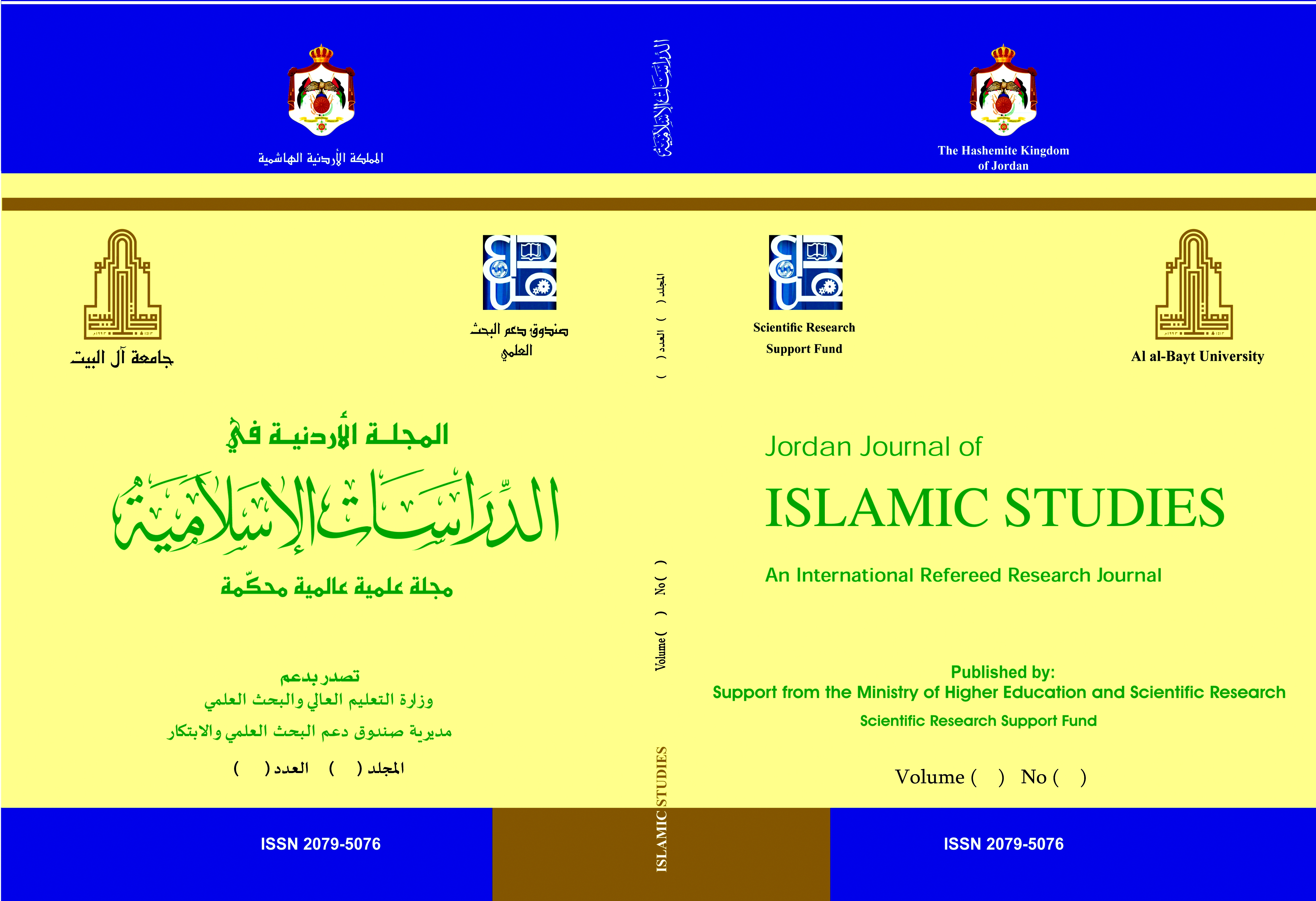Jordan Journal of Islamic Studies

Abstract
ملخص
يتناول البحث المعاني والدلالات المتضمنة فيها التي من أجلها شرع الحمد لله في الصلاة والذكر والقرآن، فضلاً عن بيان الصلة والترابط بين الذكر والإيمان، فاللفظ والدلالة العقدية بينهما علاقة وثيقة وبخاصة في الحمدلة محور البحث، والتي بذكرها تملأ الميزان، فكيف؟ وما معناها ودلالاتها العقدية؟ ولماذا كانت فاتحة أعظم سورة في القرآن، وفي سور أخرى؟ ومن ثم متى يبلغ المؤمن الدرجة العليا في سُلّم الحامدين؟
وقد خلص البحث إلى أن الكم الكثير لمدلولات وعلاقات الحمد بغيره من الألفاظ ذات الصلة صيّر البحث ومفرداته إلى نور يكشف ظلمات الجهل لدى الكثير من المسلمين الذين وقفوا عند اللفظ دون التأمل في دلالاته ومقاصده. ويُعطي مفاتيح الفهم لمعنى الحمد لله، وأن كثرة ذكرها من تمام العبودية لله I، وما يترتب على ذلك من فضائل عظيمة في الدنيا والآخرة.
The Theological Meaning of Al-Hamdalah
Abstract
The research aims to convey the interdependence between dhikr and faith, for the speech and the theological meaning between them, is profound. It has a close relationship, especially in Al-Hamdallah, which is the core of this article. And with its remembrance, the balance is filled. So how? And what does it mean? Why is it the opening of the greatest surah in the Qur'an and even other surahs? When does a believer reach the highest level in the scale of praisers?
The abundance of meanings and the relationships of praise with other related words has turned the research to reveal the darkness of ignorance among Muslims who stood at the word without thinking its connotations and purposes. The research terms give the keys to understanding praise and other dhikrs. It includes five demands: the first is the linguistic and idiomatic meaning of praise, the second is the difference between praise, appreciation, thanksgiving, and advocacy, the third in the sections of praise and the types of praisers, and the fourth includes faith conclusions and the fifth clarifies the relationship of praise with the names of God, such as Al-Hamid, and Al-Shakur.
Recommended Citation
Obaid, Hassan Hamid and Sharif, Raed Salem
(2022)
"المعاني العقدية للحمدلة The Theological Meaning of Al-Hamdalah,"
Jordan Journal of Islamic Studies: Vol. 18:
Iss.
3, Article 1.
Available at:
https://digitalcommons.aaru.edu.jo/jois/vol18/iss3/1

